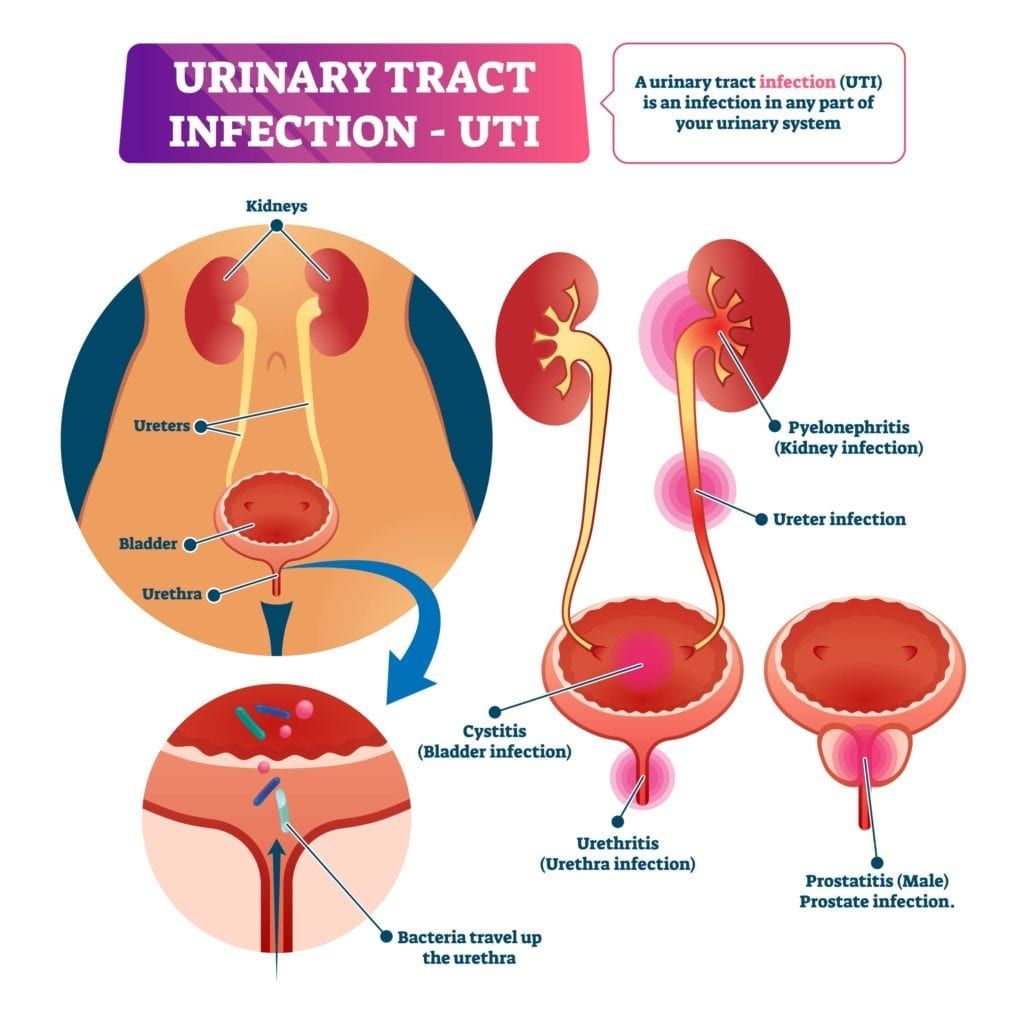
Did you know that one in every five women will have at least one urinary tract infection during their lifetime? Urinary tract infections are more common in women than men due to the fact that women have a shorter urethra. Unfortunately myths about UTIs are also quite common. A myth is a commonly accepted belief that is not accurate or truthful. There are many medical myths about almost every condition, and urinary tract infections (UTIs) are no exception to this.
A urinary tract infection affects the kidneys, bladder, and urethra. UTIs can produce symptoms such as pain while urinating, urgent need to urinate, aching or pressure in the lower abdomen, urine with a strong odor, and blood in the urine. The main problem with UTI myths is that they can ultimately impede proper medical treatment and/or be detrimental to your health. With that being said, here are some common myths about UTIs you should disregard:
Poor hygiene causes UTIs
UTIs can occur in women who are completely clean. In fact, trying to be too clean down there can also increase your risk of developing a UTI. This is because harsh soaps can kill off the natural bacteria responsible for killing off the bacteria that cause UTIs. However, it is recommended to wipe from front to back to prevent harmful bacteria from spreading from the rectum to the vagina and urethra.
Tampons can increase the risk of UTIs
Contrary to popular belief, using tampons does not increase the risk of developing a UTI. In fact, tampons may even help to prevent UTIs since they absorb moisture and keep the external area dryer than pads. Keeping this dryer prevents bacteria from increasing in population, which actually decreases the risk of infection.
UTIs and STIs are the same thing
An STI is a sexually transmitted infection, while a UTI is caused by natural bacteria on our own skin being pushed into the urethra. Unlike STIs, UTIs cannot be spread or transmitted to another person during sexual activities.

Cranberry juice cures UTIs
The only way to truly treat an active UTI is through taking the right antibiotic prescribed by your doctor. Despite the popular belief that cranberry juice can cure a UTI, there is no research that confirms this. With that being said, however, cranberry juice can decrease the risk of developing UTIs by making the urine more acidic and making it harder for bacteria to stick to the bladder. At the very least, staying hydrated by drinking cranberry juice can help decrease the risk of infection and can help to flush out current infections.
UTIs will go away on their own
While some UTIs will resolve on their own, other cases can travel to your kidneys and cause a kidney infection. This can cause permanent damage, as well as severe discomfort. If you are experiencing UTI symptoms, it is recommended that you visit your doctor for an examination as soon as possible. Once antibiotics are prescribed, you will need to take the medication as directed and drink plenty of fluids to help eliminate the infection.

Dr. Geoffrey Zann is a Certified Robotic Da Vinci Surgeon, Board-certified by the American College of Obstetricians and Gynecologists, and a Diplomat of the American Board Obstetrics of Gynecology. He has been a member of the American Society for Colposcopy and Cervical Pathology, American Association of Gynecologic Laparoscopists, and the Hugh R. K. Barber Obstetric and Gynecologic Society.
